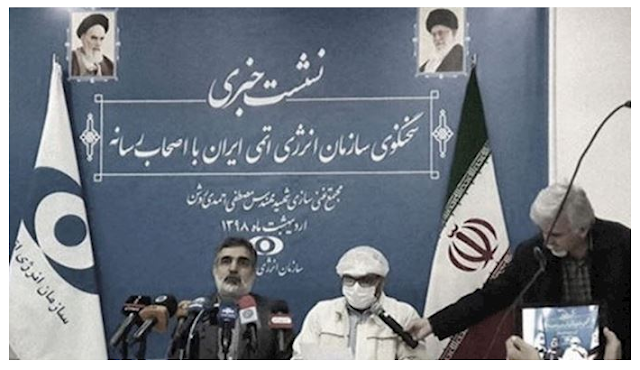Iran foreign relations: Panhandling tactic and the truth
Zarif and Araghchi on a futile tour to buy time for their regime
Analysis by PMOI/MEK
Iran, May 31, 2019 - While economic sanctions targeting the mullahs’ regime are gradually increased, and the Western appeasement policy vis-à-vis the ruling mullahs in Iran nears its end, Tehran’s foreign relations establishment is employing a tactic of panhandling more than ever before.
The explosive mood of the Iranian society is the decisive ingredient in the current equation for the ruling elite in Iran, especially since a population ready for an uprising at any moment is the one and the only factor the corrupt mullahs in Iran cannot tolerate in the face of outside pressure.
Iranian regime Supreme Leader Ali Khamenei has sent Foreign Minister Mohammad Javad Zarif and his first deputy, Abbas Araghchi, to the region and Japan to buy their favor and prevent a disastrous outcome for the Iranian regime. Yet, how will all of these end?
Following recent remarks by U.S. President Donald Trump in Japan about his administration was not aiming for regime change in Iran, media outlets close to Khamenei’s faction were swift to celebrate a victory for the regime and considered Trump’s statements a defeat for the U.S.
The Keyhan newspaper, known as Khamenei’s mouthpiece, began the boasting.
“Trump’s puppet show didn’t work. As a result, he lined up the mediators,” Keyhan wrote. In Parallel fashion, Vatan Emrouz wrote: “The process of backing off from military confrontation continues… The unpredictable and crazy Trump is at least predictable on one subject these days and that is his abstinence from confronting the [Iranian regime].”
However, pundits and officials close to Iranian regime President Hassan Rouhani’s faction disagree and warn about the mullahs’ dangerous circumstances.
Mehdi Motaharnia, a political pundit close to Rouhani’s camp, issued a warning.
“The fact that Trump and some White House officials talk sometimes about negotiating with Tehran, should be viewed in a framework of short term tactics rather than a U.S. strategic approach toward Iran. They are demanding Tehran first start the path of changing its behavior, and decreases tensions and obstacles in the way of the U.S. in the Middle East, such as presenting the deal of the century. Afterward, the path is paved for the disintegration of the [Iranian regime] and its change,” he said.
Motaharnia painted the dual path before Iran’s ruling mullahs.
“Tehran has to either announce its cooperation with Washington’s policies or the endeavor for its isolation. Thus, the removal will start, and it has already happened,” he explained.
Mohammad Mousavi Bojnourdi, an Iranian cleric and former high-ranking member of the Judiciary, warned about the explosive mood of the population.
“In the current circumstances, Iran should not be impacted by outside sentiments and excitements, and should not leave the orbit of reason. Economically, people’s livelihoods are very difficult. Therefore, officials should work more seriously to solve the people’s economic difficulties,” he explained.
Fararou website, close to Rouhani’s faction, published an article on May 28 with the subtitle, “Zarif’s secret message in Baghdad to Washington.”
“Over the past month, as tensions increased between Iran and the U.S., the diplomatic establishment greatly increased its activities and officials are continuously racing back and forth to transmit messages while explaining Iran’s position,” the post reads.
“Last Saturday, shortly after returning from Pakistan, Zarif traveled to Iraq. This trip followed Zarif’s visits to countries such as India, China, Russia, Japan, and Iraq. Additionally, Araghchi also traveled to Qatar, Kuwait, and Oman,” the article further read.
Meanwhile, referring to the mediators’ frequent trips, the Ir.diplomacy website writes: “It appears that the main issue has been lost. Everybody talks about mediating to decrease the possibility of military confrontation, while they ignore the fact that the U.S. increased its military threats against Iran; while shortly prior to that, it implemented harsh sanctions against Iran… From abolishing waivers for countries who bought our oil and shortly afterward, sanctions on our metal industries… These were the pressures that the U.S. tried to apply economically.”
“Are they attempting to ask us much so that we are going to be satisfied with having a little?” the article concludes.








